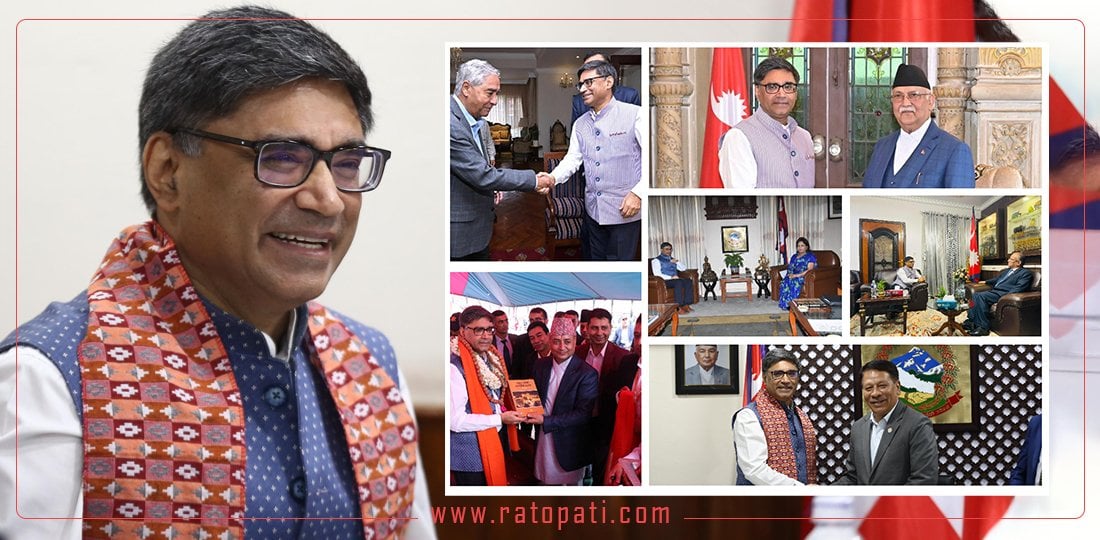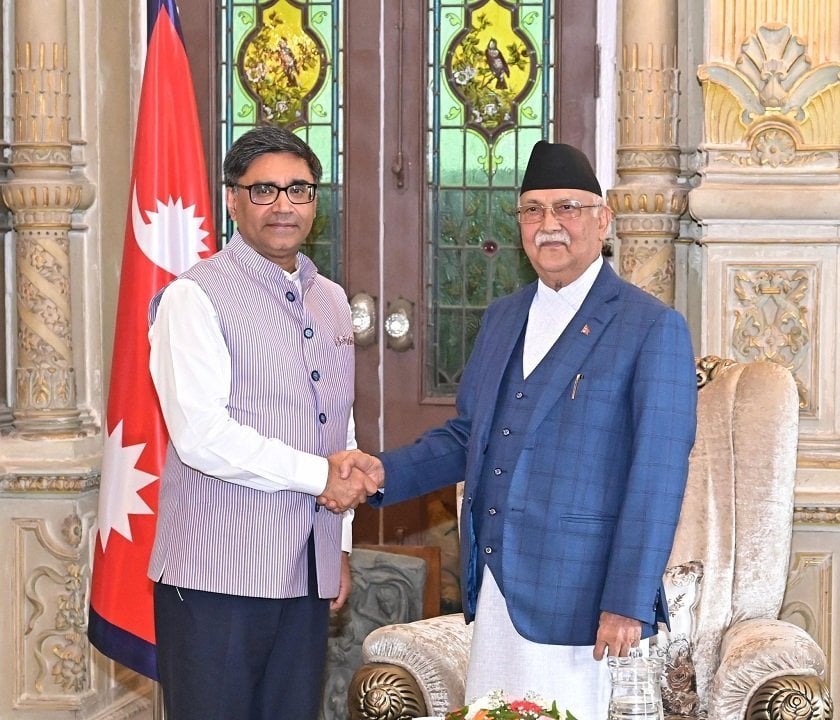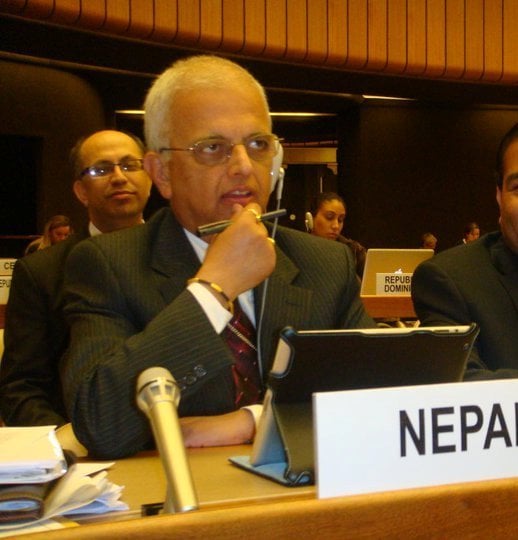Misri's Nepal mission: A friendly gesture or a strategic snipe?

Kathmandu, August 13: India's Foreign Secretary Vikram Misri returned to India on Monday after a two-day visit to Nepal. Appointed as Foreign Secretary in July, Misri made this visit to Nepal following his trip to Bhutan.
Misri, who has also been appointed as Secretary of India's National Security Council, is currently on an introductory tour of neighboring countries. However, his visit to Nepal extended beyond a mere introductory gesture.
During his visit, Indian Foreign Secretary Misri met with a range of Nepali leaders, including the Prime Minister, ruling party officials, and opposition figures. Discussions during these meetings focused on the treaty agreements between Nepal and India and future strategic matters.
Following Misri's visit, Nepal's Prime Minister KP Sharma Oli is expected to travel to India. Misri conveyed an invitation from Indian Prime Minister Narendra Modi for Prime Minister Oli to visit India.

India is keen to host Prime Minister Oli in Delhi. It is believed that Misri's visit was aimed at extending this invitation to Oli.
The relationship between Oli and India has been strained, with India expressing disapproval of some of Oli's actions. Nonetheless, given the current political climate, India is looking to rebuild relations with Prime Minister Oli, and it is anticipated that he will visit India soon.
The political undertones of Misri's visit are evident, as he met with prominent leaders from various parties in Nepal.
‘Introductory visit’
Foreign Ministry spokesperson Amrit Bahadur Rai described Misri's visit as an introductory one, consistent with Indian tradition for newly appointed officials to visit neighboring countries. Rai clarified that no new treaty agreements were made during this visit, though discussions on various issues, including streamlining mechanisms and ongoing Indian-funded projects, took place.
Rai emphasized, "This was not a political visit but an introductory one for the Foreign Secretary."
Misri visited Nepal at the invitation of Foreign Minister Sewa Lamsal. Throughout his visit, he engaged with the President, Prime Minister, Deputy Prime Minister, various ministers, and key party leaders.
Permission for air routes
During meetings, topics such as border disputes, air routes, and the Mahakali Treaty were discussed. Foreign Minister Arju Rana Deuba requested the Indian government to increase the number of air routes to Nepal.
Deputy Prime Minister and Urban Development Minister Prakashman Singh asked India to facilitate the construction of a bridge over the Mahakali River.
Foreign Secretary Misri showed interest in Nepal's various development projects and sought information on their implementation. Finance Minister Bishnu Paudel called for intensified cooperation between Nepal and India.
Wary of growing Chinese presence in Nepal
An official from the Ministry of Foreign Affairs noted that Misri's visit appeared to be motivated by concerns over China's growing presence in Nepal, although China was not explicitly mentioned in the discussions.
The official suggested that Misri’s visit should not be underestimated and will likely have repercussions in the near future.
The visit, which coincided with a change in Nepal's government, was seen as carrying political significance. The official remarked that Nepal viewed the visit as highly important.
Similar political activities occur when Chinese officials visit Nepal, with extensive meetings with leaders.
Foreign affairs expert Dinesh Bhattarai explained that introductory visits by new Foreign Secretaries are standard practice to familiarize themselves with neighboring countries. He noted, "Such visits are crucial for understanding the nuances of the relationship. The more interactions they have, the better they understand and engage with Nepal."

Bhattarai added that Nepal must assess how much importance to attach to these visits, suggesting that it is Nepal's responsibility to determine the level of significance given to such visits, rather than solely attributing it to the visiting country.










Leave Comment